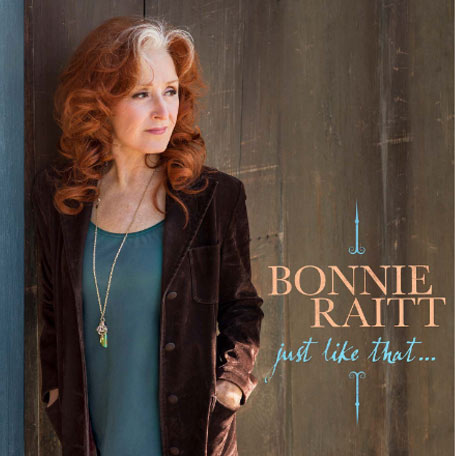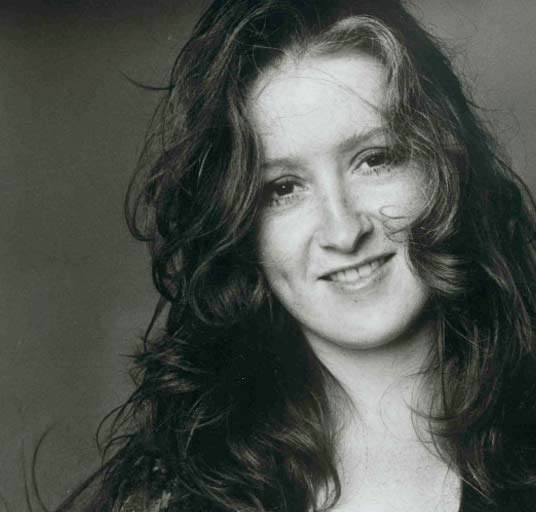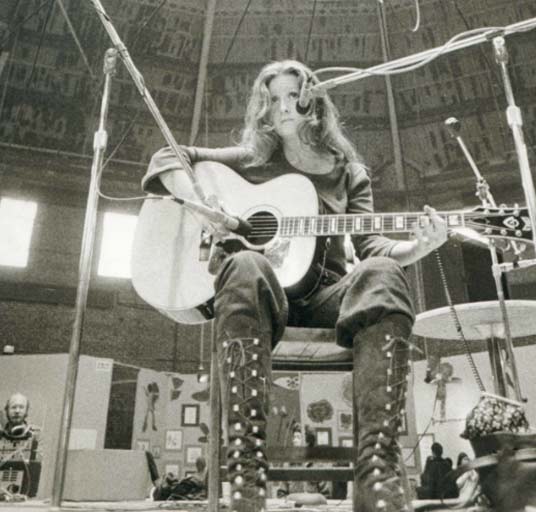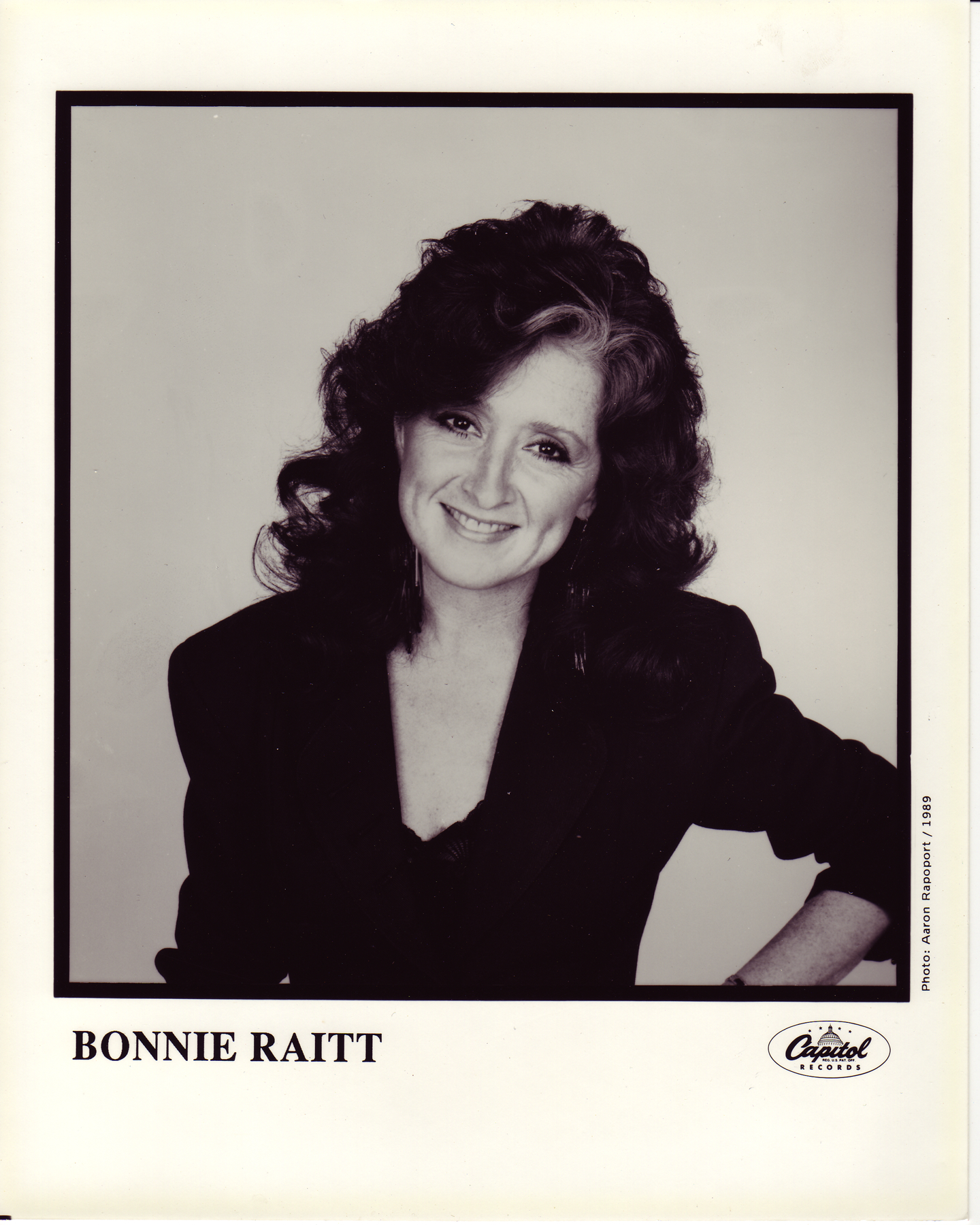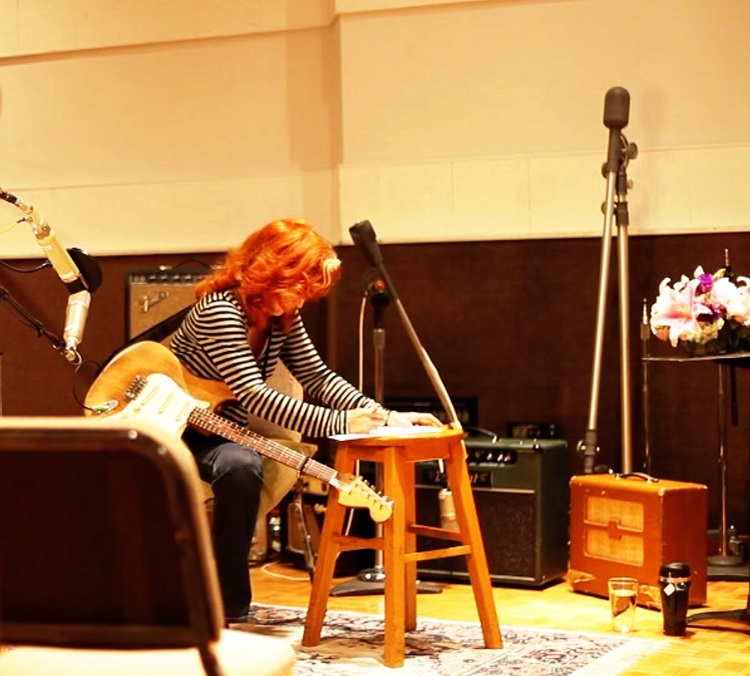Word spread quickly of the young red-haired blueswoman, her soulful, unaffected way of singing, and her uncanny insights into blues guitar. Warner Bros. tracked her down, signed her up, and in 1971 released her debut album, Bonnie Raitt. Her interpretations of classic blues by Robert Johnson and Sippie Wallace made a powerful critical impression, but the presence of intriguing tunes by contemporary songwriters, as well as several examples of her own writing, indicated that this artist would not be restricted to any one pigeonhole or style.
Over the next seven years she would record six albums. Give It Up, Takin’ My Time, Streetlights, and Home Plate were followed in 1977 by Sweet Forgiveness, which featured her first hit single, a gritty Memphis/R&B arrangement of Del Shannon’s “Runaway.” Three Grammy nominations followed in the 1980s, as she released The Glow, Green Light, and Nine Lives. A compilation of highlights from these Warner Bros. albums (plus two previously unreleased live duets) was released as The Bonnie Raitt Collection in 1990. All of these Warner albums have been digitally remastered and re-released.
In between sessions, when not burning highways on tour with her band, she devoted herself to playing benefits and speaking out in support of an array of worthy causes, campaigning to stop the war in Central America; participating in the Sun City anti-apartheid project; performing at the historic 1980 No Nukes concerts at Madison Square Garden; co-founding MUSE (Musicians United for Safe Energy); and working for environmental protection and for the rights of women and Native Americans.
After forging an alliance with Capitol Records in 1989, Bonnie achieved new levels of popular and critical acclaim. She won four Grammy Awards in 1990—three for her Nick of Time album and one for her duet with John Lee Hooker on his breakthrough album The Healer. Within weeks, Nick of Time shot to number one (it is now certified quintuple platinum). Luck of the Draw (1991, seven-times platinum) brought even more success, firing two hit singles—”Something to Talk About” and “I Can’t Make You Love Me”—up the charts, and adding three more Grammys to her shelf.
The double-platinum Longing in Their Hearts, released in 1994, featured the hit single “Love Sneakin’ Up On You” and was honored with a Grammy for Best Pop Album. It was followed in 1995 by the live double-CD and film Road Tested (now available on DVD). Along with her own set, it features duets with Bryan Adams, Jackson Browne, Bruce Hornsby, Ruth Brown, Charles Brown, and Kim Wilson.
After all the awards and honors and decades of virtually non-stop touring under her belt, Bonnie continued her activism and guesting on numerous friends’ records, including Ruth Brown, Charles Brown, Keb’ Mo, Ladysmith Black Mambazo, and Bruce Cockburn, as well as tribute records for Richard Thompson, Lowell George, and Pete Seeger. She picked up another Grammy in 1996 for Best Rock Instrumental Performance for her collaboration on “SRV Shuffle” from the all-star Tribute to Stevie Ray Vaughan, and continued her “dual career,” performing with her father, John, in concerts as well as on his Grammy-nominated album, Broadway Legend, released in 1995.

